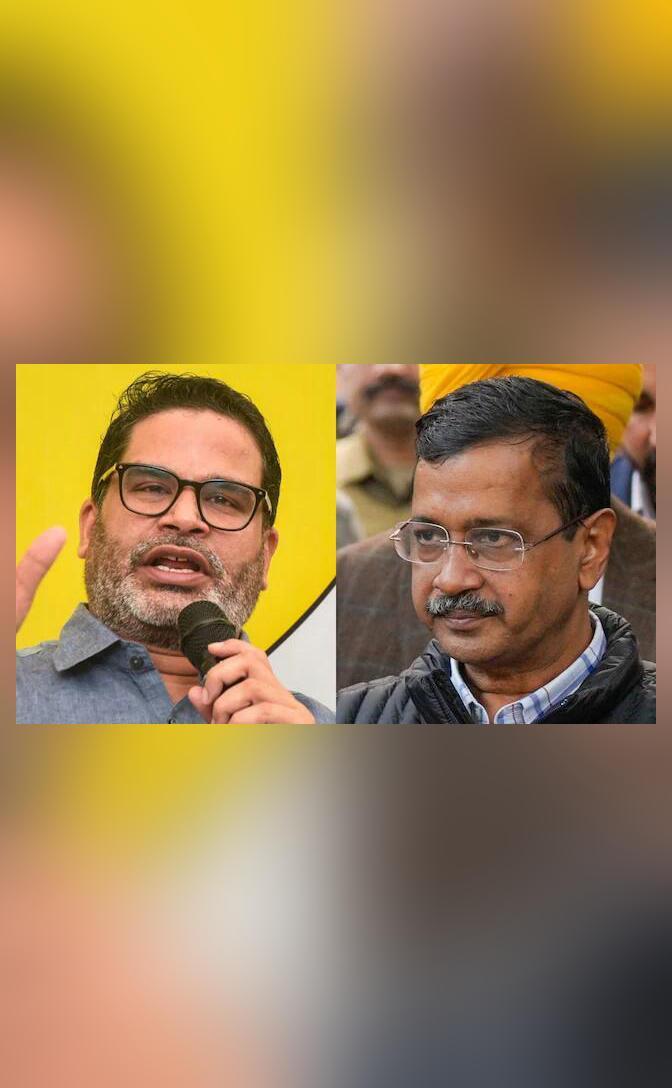
Prashant Kishor Lists Reasons Why Kejriwal & AAP Lost in Delhi Elections
The recent Delhi Assembly elections saw a stunning defeat for the Aam Aadmi Party (AAP) under the leadership of Arvind Kejriwal. The party, which had been in power since 2015, faced a tough challenge from the Bharatiya Janata Party (BJP) and managed to win only 62 seats, losing the majority. The defeat has been attributed to several factors, including the 10-year anti-incumbency factor and Kejriwal’s fluctuating stance on joining and exiting the INDI Alliance.
In a recent interview, Prashant Kishor, a politician and former political strategist, shed light on the reasons behind AAP’s defeat. According to him, one of the biggest blunders made by Kejriwal was resigning as the Delhi Chief Minister after being granted bail in the liquor policy case. Kishor believes that this decision was a “big strategic mistake” and hurt AAP’s chances of winning the elections.
Kishor argued that Kejriwal’s resignation was seen as an admission of guilt, which further damaged his credibility among the voters. This, combined with the 10-year anti-incumbency factor, made it difficult for the AAP to win the elections. According to Kishor, the 10-year anti-incumbency factor is a significant challenge for any party that has been in power for a long time.
“Anti-incumbency is a natural phenomenon,” Kishor said. “Every party that has been in power for a long time faces this challenge. AAP was no exception. The 10-year anti-incumbency factor was a significant challenge for them, and they couldn’t overcome it.”
Kishor also criticized Kejriwal’s decision to join and exit the INDI Alliance. According to him, this fluctuating stance of Kejriwal hurt his credibility and made it difficult for the AAP to consolidate its support base.
“Kejriwal’s decision to join and exit the INDI Alliance was a big mistake,” Kishor said. “It showed that he was not a reliable leader and that he was willing to change his stance to suit his convenience. This hurt his credibility and made it difficult for the AAP to win the elections.”
Kishor also suggested that the AAP’s campaign was not effective in addressing the issues that mattered most to the voters. According to him, the party focused too much on its achievements and not enough on the problems faced by the people.
“The AAP’s campaign was not effective in addressing the issues that mattered most to the voters,” Kishor said. “The party focused too much on its achievements and not enough on the problems faced by the people. This made it difficult for them to connect with the voters and win their support.”
Kishor also criticized the AAP’s handling of the COVID-19 pandemic. According to him, the party’s handling of the pandemic was not effective and failed to address the needs of the people.
“The AAP’s handling of the COVID-19 pandemic was not effective,” Kishor said. “The party failed to address the needs of the people and did not provide adequate support to those who were affected by the pandemic. This further eroded Kejriwal’s credibility and made it difficult for the AAP to win the elections.”
In conclusion, Prashant Kishor believes that the AAP’s defeat in the Delhi Assembly elections was due to a combination of factors, including Kejriwal’s resignation after being granted bail, the 10-year anti-incumbency factor, and the party’s ineffective campaign and handling of the COVID-19 pandemic. According to him, the AAP needs to learn from its mistakes and adapt to the changing political landscape if it wants to remain relevant in the future.






